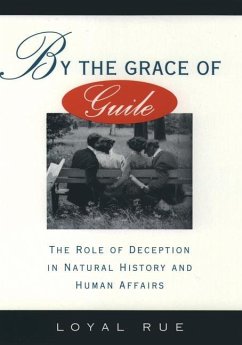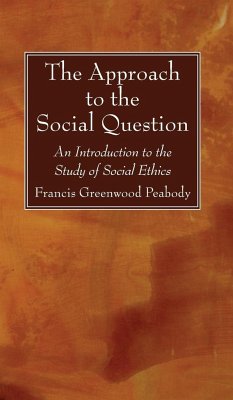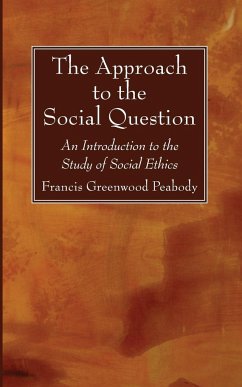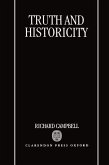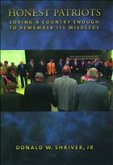In this ambitious, interdisciplinary work, Loyal D. Rue reassesses the value of deception in nature, and in human society, asserting that myths are essential to the health, and even survival, of a culture as a whole. Advancing his theory of the Noble Lie, he maintains that we urgently require a new myth to replace the religious beliefs rejected by the modern mind. Such a Lie, Rue believes, offers our only salvation from the psychological and social chaos now threatened by the spread of scepticism about the meaning of the universe and life. Rue holds our deeply ingrained western bias against deception up to rigorous examination, comparing it to what he calls the natural bias in favour of deception. Evolution rewards the successful deceiver, he maintains, and cites examples from the natural world and from psychological research indicating that strategies of deception and self-deception are essential to our personal well-being.
The nihilists are right, admits philosopher Loyal Rue. The universe is blind and aimless, indifferent to us and void of meaning. There are no absolute truths and no objective values. There is no right or wrong way to live, only alternative ways. There is no correct reading of a text or a picture or a dance. God is dead, nihilism reigns. But, Rue adds, nihilism is a truth inconsistent with personal happiness and social coherence. What we need instead is a new myth, a noble lie. Only a noble lie can save us from the psychological and social chaos now threatened by the spread of skepticism about the meaning of life and the universe. In By the Grace of Guile, Loyal Rue offers a wide-ranging look at the importance of deception in nature and in human society, concluding with an argument for a noble lie to replace the religious beliefs rejected by modern thought. Most of the book is a provocative examination of deception, illuminating its role in the shaping of history, evolution, personality, and society. Ranging from the Bible and Greek philosophy, to Saint Augustine and Montaigne, to Galileo, Kierkegaard, and Freud, Rue shows that it may be more accurate to describe the history of our culture as a flight from deception than as a quest for truth. He turns then to the natural world to reveal how deception works at every level of life, ranging from plants that mimic dung to a remarkable African insect (Acanthaspis petax) that bedecks itself with dead ants and enters the ant colony undetected to binge at will. Rue points out that psychological research has shown that strategies of deception and self-deception are essential to our personal well-being, that we sometimes shore up our self-esteemby deceptive means, by leaving others in a state of ignorance, by manipulating others into a state of false belief, by suppressing information from consciousness, and by fabricating or distorting our own sense of reality. And he argues that social coherence is achievable only within certain optimal limits of deception - the social fabric would be threatened by an overabundance of lies and false promises, of course, but it would also collapse if everyone were perfectly honest all the time. Finally, he argues that society is caught up in a Kulturkampf with nihilists promoting intellectual and moral relativism and realists defending objective and universal truths. The noble lie, says Rue, would introduce a third voice, one which first agrees with the nihilists that universal myths are pretentious lies, but then insists, against the nihilists, that without such lies humanity cannot survive. The challenge, he concludes is ultimately an aesthetic one: it remains for the artists, poets, novelists, musicians, filmmakers and other masters of illusion to seduce us into an embrace with a noble lie. We need a bold new myth that tells us where we have come from, what our nature is, and how we should live together - a story with the courage and presumption to say how things really are and what really matters.
Hinweis: Dieser Artikel kann nur an eine deutsche Lieferadresse ausgeliefert werden.
The nihilists are right, admits philosopher Loyal Rue. The universe is blind and aimless, indifferent to us and void of meaning. There are no absolute truths and no objective values. There is no right or wrong way to live, only alternative ways. There is no correct reading of a text or a picture or a dance. God is dead, nihilism reigns. But, Rue adds, nihilism is a truth inconsistent with personal happiness and social coherence. What we need instead is a new myth, a noble lie. Only a noble lie can save us from the psychological and social chaos now threatened by the spread of skepticism about the meaning of life and the universe. In By the Grace of Guile, Loyal Rue offers a wide-ranging look at the importance of deception in nature and in human society, concluding with an argument for a noble lie to replace the religious beliefs rejected by modern thought. Most of the book is a provocative examination of deception, illuminating its role in the shaping of history, evolution, personality, and society. Ranging from the Bible and Greek philosophy, to Saint Augustine and Montaigne, to Galileo, Kierkegaard, and Freud, Rue shows that it may be more accurate to describe the history of our culture as a flight from deception than as a quest for truth. He turns then to the natural world to reveal how deception works at every level of life, ranging from plants that mimic dung to a remarkable African insect (Acanthaspis petax) that bedecks itself with dead ants and enters the ant colony undetected to binge at will. Rue points out that psychological research has shown that strategies of deception and self-deception are essential to our personal well-being, that we sometimes shore up our self-esteemby deceptive means, by leaving others in a state of ignorance, by manipulating others into a state of false belief, by suppressing information from consciousness, and by fabricating or distorting our own sense of reality. And he argues that social coherence is achievable only within certain optimal limits of deception - the social fabric would be threatened by an overabundance of lies and false promises, of course, but it would also collapse if everyone were perfectly honest all the time. Finally, he argues that society is caught up in a Kulturkampf with nihilists promoting intellectual and moral relativism and realists defending objective and universal truths. The noble lie, says Rue, would introduce a third voice, one which first agrees with the nihilists that universal myths are pretentious lies, but then insists, against the nihilists, that without such lies humanity cannot survive. The challenge, he concludes is ultimately an aesthetic one: it remains for the artists, poets, novelists, musicians, filmmakers and other masters of illusion to seduce us into an embrace with a noble lie. We need a bold new myth that tells us where we have come from, what our nature is, and how we should live together - a story with the courage and presumption to say how things really are and what really matters.
Hinweis: Dieser Artikel kann nur an eine deutsche Lieferadresse ausgeliefert werden.

